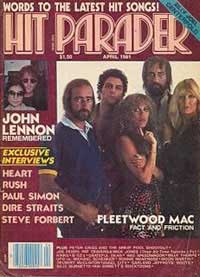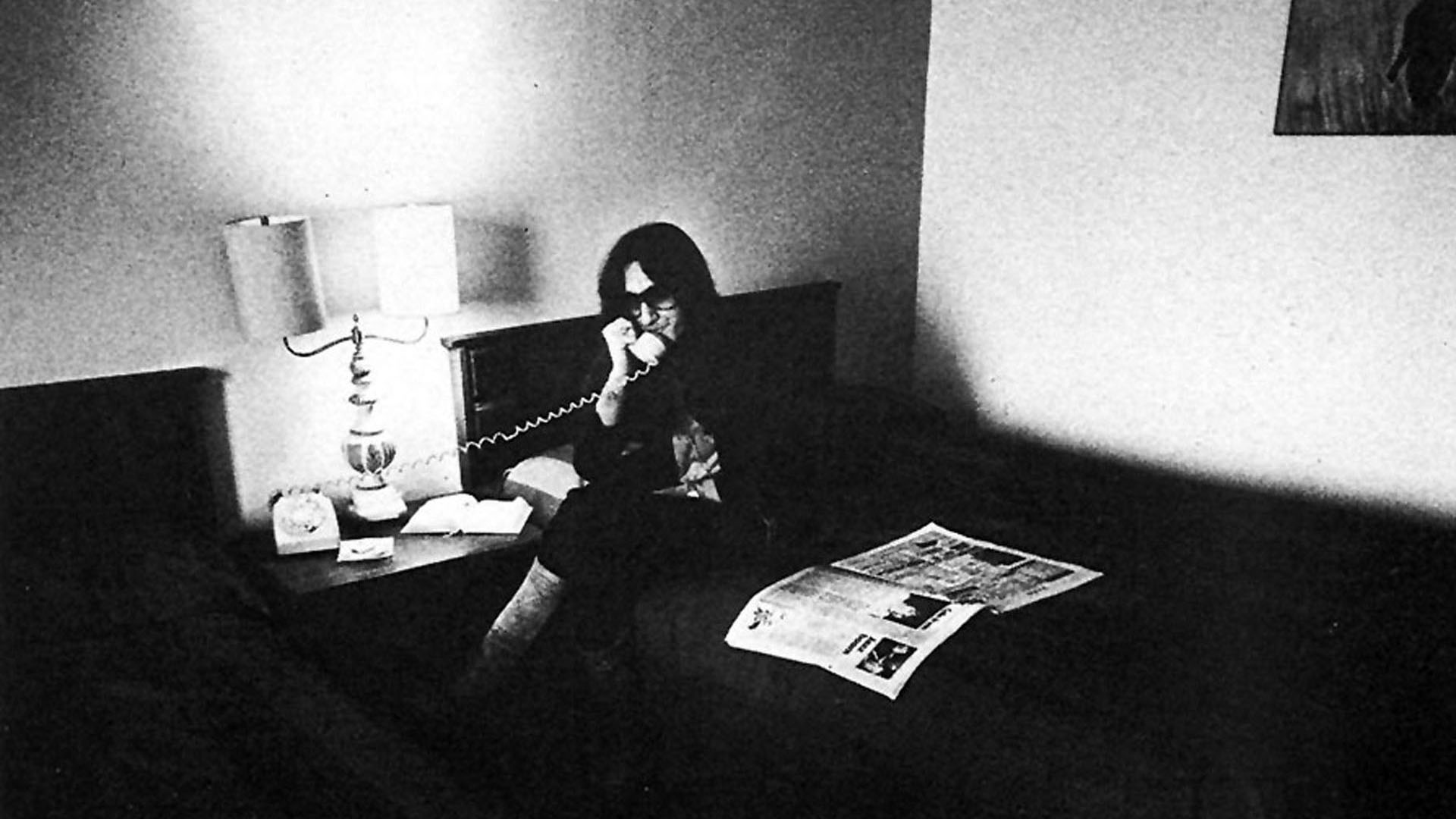Rush To Glory
Pleasing Most Of The People All Of The Time
By Andy Secher, Hit Parader, April 1981, transcribed by pwrwindows

"I just can't figure why some people keep dumping on us," Rush's blond guitarist Alex Lifeson blurted out as he slumped into a dressing room chair, Lifeson and cohorts Neil Peart (drums) and Geddy Lee (bass and vocals), had just finished a rousing performance for 15,000 appreciative fans. Even so, as Lifeson slowly unbuttoned his sweat-drenched shirt, his annoyance at Rush's lack of critical acceptance became increasingly apparent.
"Sometimes I look at the charts, or listen to the crowds roar, and I say to myself, 'Hey, everything's goin' along pretty well.' Then I read somewhere about how Rush is too complex for their own good, or how pompous we are, I'll tell you, stuff like that can get to you after a while. We're in the business of pleasing people with our music, and it can get awful annoying when some people refuse to accept what you're trying to do."
Lifeson's indignation isn't entirely without cause, In the last eight years, Rush has emerged, quite unintentionally, of course, as rock's answer to Rodney Dangerfield. It seems that no matter how hard they try, they just don't get no respect. Even with their more recent LPs, notably last year's platinum Permanent Waves, ran king among the most highly successful heavy-metal albums in rock history, this Canadian power trio remains a favorite target for both critical journalists and more "aesthetically" inclined rock fans.
With a style somewhat dependent on overbearing instrumental pyrotechnics and mystically inane lyrics, Rush long ago earned a reputation as an ostentatious hard rock band. With their latest LP, Moving Pictures, they've trimmed the excess from their metallic style. What's left is powerful, intricate and undeniably entertaining.
"I really don't see what all the fuss is about." Geddy Lee laughed as he peered over the top of his huge oval glasses. "We're not exactly newcomers to this business, but all of a sudden it seems like that music world has discovered that we exist. We've put out some pretty good records over the last few years, and we've built up a core of fans who've helped turn almost every one of them gold. I like to think that we've developed a distinctive style, that people can hear and immediately identity as new Rush.
"Sure we've had our share of critical abuse, but honestly, how many rock and roll bands haven't? We know what we want to do with our music, and we're not about to let anyone's opinion change that. I must say though," he added with an impish smile, "it's kind'a nice to finally be noticed by a wider audience. I guess that's what every performer really wants."
While Lee may seem somewhat casual when discussing Rush's recent success, the band's members are the first to admit that their current albums represent a major stylistic shift from earlier works. Unlike their concept albums 2112 and Hemispheres (both of which were heavily steeped in mythology, mysticism and science fiction), the later LPs now boast not only Lifeson's fiery guitar and Lee's screeches, but a clarity and impact that were previously lost amid more complex musical meanderings.

"I realize that much of what we did on our earlier albums went over our audiences' head," drummer Neil Peart confessed. "We were trying to show how diverse hard rock could be. I think we did that extremely well, but our approach did have a number of built-in limitations. We got to the point where we were using an entire side of Hemispheres to do only one song, so we realized that we'd have to trim down our aspirations a bit. We started in that direction with Permanent Waves, and now with Moving Pictures I think we've really succeeded. We've tried to present songs that stand on their own without being part of an overall concept."
In the absence of a single concept, many songs on Moving Pictures depict, according to Peart, "our view of life. There's one song on the album called 'The Camera Eye', which examines the phenomenon of being able to recall various things in your life." Peart explained, "We're all very interested in cameras and film work, especially Geddy, so a title like Moving Pictures fits right in with our interests.
"My favorite song on the album is 'Limelight'." Peart continued, "It's about coming to terms with the attention one gets by being a rock and roll performer. It's interesting to me because I've always had difficulty seeing members of Rush - particularly myself - as rock Stars. We've always been most concerned with the creative and artistic processes and the 'star trip' mentality is something that we've never really experienced. I guess it's a natural part of the business, but in this band we've been very self-conscious at times, so we try to keep our feet on the ground and always stay in touch with what the fans want."
What the fans want - and get - is one of the most elaborate rock spectaculars featuring flashy musicianship and films that graphically depict some of the songs' themes.
For instance, their opus Hemispheres - presented with creative screen animation - is the half-hour long highlight of the group's concert performance.
"The visual aspect of our shows is as important as the music," Geddy Lee explained. 'While our albums may not delve into as many complex themes as they used to, our music, especially onstage, is still very involved with science fiction and mythology. Certain songs we've done seem to lend themselves very well to the use of animation, especially a number like 'Hemispheres', which touches on everything from space travel to black holes. We feel that a strong overall presentation is very important to the impact of our shows. Of course, we could just rely on our music, but we've never been satisfied taking the easy way out."
Though admittedly limited by its three-man, heavy-metal approach, Rush remains fresh and viable because each band member contributes to the song-writing process. Peart supplies practically all of the band's lyrics, and Lee and Lifeson handle the musical responsibilities, creating an almost assembly-line efficiency. The songs still reflect the individual interests and personality of each band member.
"Normally, I write the lyrics first and hand them over to Alex and Geddy who'll shape the music around 'em," Peart explained. "That way we're all involved in the creative process. Because of that, we've developed an affinity for one another. Our lineup isn't a handicap: actually, it's our greatest strength.
"We have more self confidence than ever before." Peart added, "We know what's best for the band, and, more importantly, we follow our own advice. Recently, as an example, people were telling us to follow up Permanent Waves with a live album that would cover everything from 'Hemispheres' to 'Spirit of Radio'. But we had so much good studio material ready that it would be silly to release a live album. This band has a sense of purpose and a feeling of unity that's really incredible."
With the success of Moving Pictures, Rush stands on the verge of claiming recognition as one of the premier hard rock bands. They have finally conquered whatever musical stigmas that have plagued their career. By infusing new ideas into their metallic style Rush has become the spearhead of heavy-metal's creative evolution.